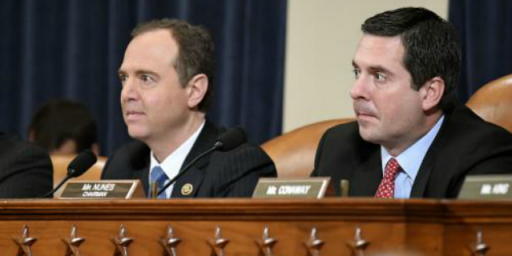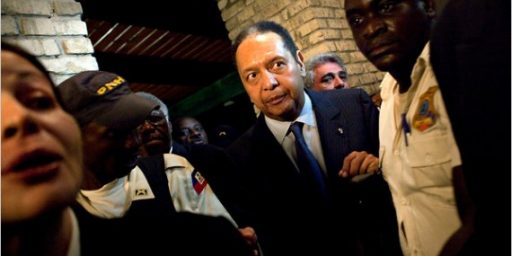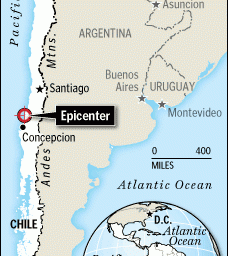University of Florida Bars Haiti Footage
 A strange one from Inside Higher Ed:
A strange one from Inside Higher Ed:
The University of Florida has told two master’s students at the Documentary Institute that they cannot use footage they shot in Haiti for their thesis project because the university barred student travel to Haiti, The Gainesville Sun reported. The students say they needed the footage for their film, and used private funds to pay for the travel, but the university says that permitting the footage would undercut the travel ban.
On what planet does a university get to impose a travel ban? And why would they preclude film students from doing what countless camera crews from around the world were doing? I followed the link and it in turn referred me to a posting from the same blog dated February 5, “UF will no longer sanction student trips to Haiti.”
In a memo sent out this afternoon, UF said that based “on an assessment of risk and on advice from the federal and state governments” that there “are to be no UF-sanctioned, -sponsored, or -approved trips for students to Haiti.”
Faculty and staff who wish to travel to Haiti to provide assistance or act in their professional capacities as employees of UF must receive prior approval for the trip from university officials, according to the memo.
“Faculty and staff who do not receive such approval but who nevertheless choose to travel to Haiti on unpaid or annual leave should make clear that they are acting without the approval or sanction of the university and do not represent the university,” the memo said.
So, basically, UF was covering their backsides so that, if anyone got hurt in Haiti, they couldn’t sue the university. Fair enough.
But, having severed themselves from responsibility, why punish students who took the risk on their own accord and did so on someone else’s dime? How would it “undercut” a “travel ban” the university has no authority to issue?
Further, in this particular case, students Jon Bougher and Roman Safiullin were already working on the film and happened to be in Haiti when the quake hit in January. They were there well before the dubious ban was issued. So, in essence, the university is stealing from these students the time that they spent on this project in a raw demonstration of power. I hope they’re sued and lose big.






Wow, seems unbelievable. I’d like to hear an official response before making any judgments, but it ain’t looking too good.
/Just another reason to hate the Gators
It’s been clear for some time that most universities are in the business of telling their students what to think, not how to think (the Ann Coulter in Canada episode is just the latest example, and you can also see the video which made the rounds of the shouting down of Israel’s ambassador to the US (maybe UN) at some theoretically prestigious school).
And for years universities have been blatantly abrogating First Amendment rights (let’s leave the discussion of whether they are a state actor for purposes of the Constitution for another time) in favor of “speech codes” which are used to insure conformity with the liberal line.
So why should you be shocked that this university believes it has the power to control its students travel? Isn’t the classic playbook of the totalitarian to first shut down the newspapers (speech) and then close the borders (travel)?
Let us not pass up any opportunity to use any piece of news, no matter how unrelated it is, to bash the evil liberals…
@IP: Indeed.
This is clearly, as James notes, a bit of legal CYA. However, James is also correct that it makes zero sense to apply a ban ex post facto or to stop students from using footage that was obtained via private funds.
University bureaucracies (as is true in most large organizations, public of private) can make some pretty bizarre (if not downright stupid decisions.
And, I would note, typically not for political reasons. Indeed, if politics enters into it, such entities tend to actually be on the more conservative side of things.
Given that the footage was used for an academic assignment, wouldn’t allowing the use of private funds to circumvent university policy be a little bit unfair?
I mean, I agree with your and James’ objections to this ruling, but certainly the fact that these students had the cash to pay for it shouldn’t be a factor in making it okay vs. not okay.
@Michael: if the issue is University liability, the source of funding/approval for the trip matters, it seems to me.
Still, the most salient point here seems to me to be the timeline.